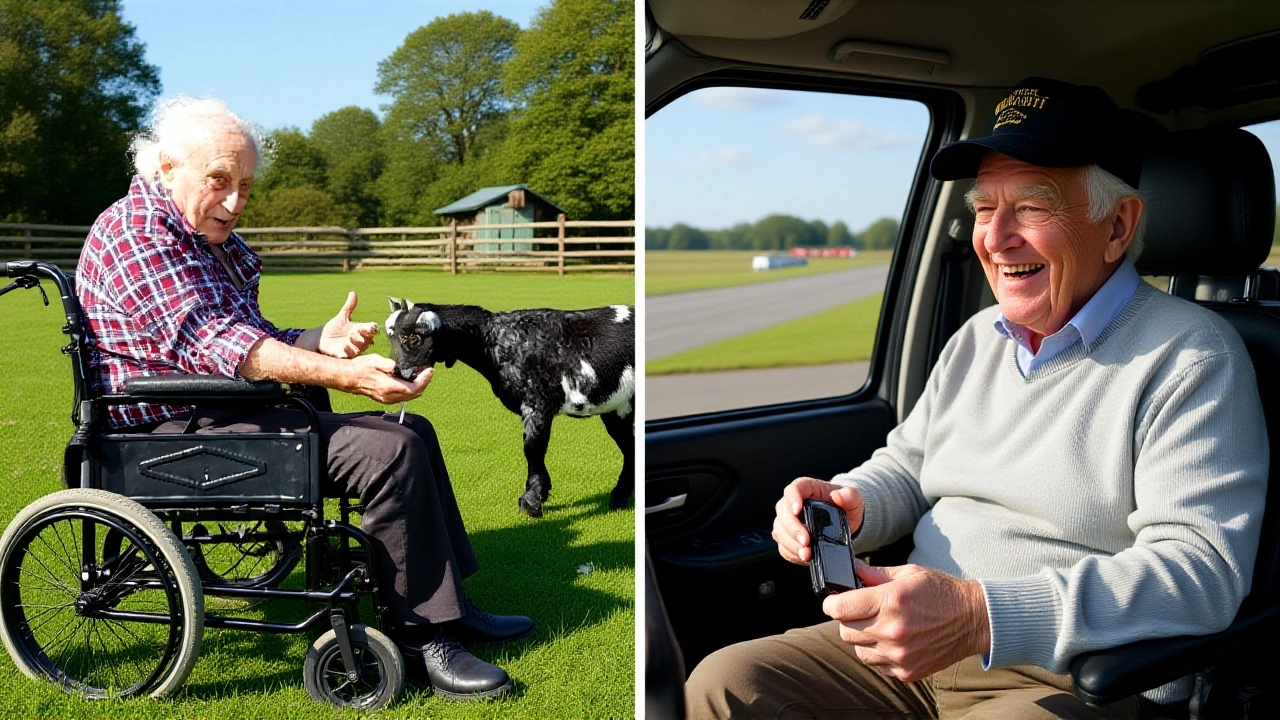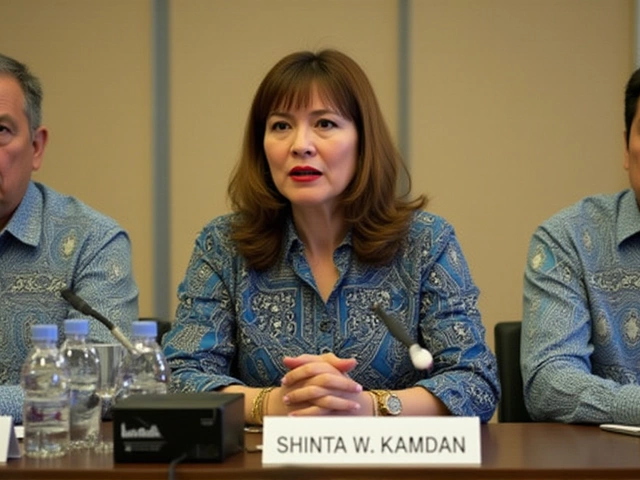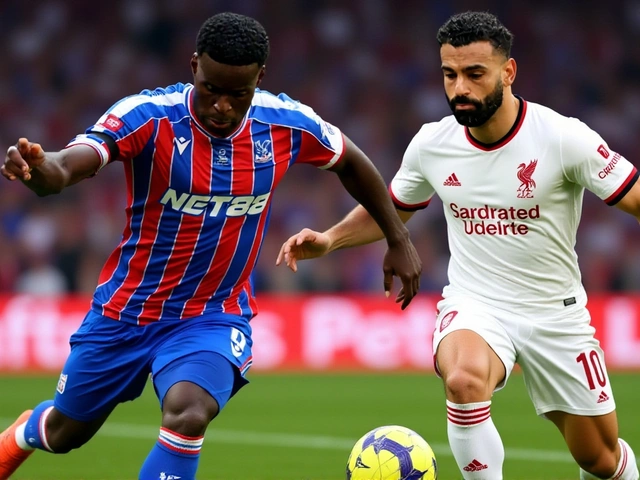On Wednesday, November 19, 2025, the world will observe International Men's Day under the theme 'Celebrating Men and Boys'—a day that, despite its growing reach, still lacks official recognition from the United Nations. But while global attention often fixates on March 8, the quiet force behind this year’s largest observance isn’t in Geneva or New York—it’s in India. According to the official International Men's Day website, India hosts “by far the single biggest celebration by any country in the global village.” And at the heart of that movement is Uma Challa, a Bengaluru-based men’s rights activist who, since 2007, has turned a modest awareness campaign into a nationwide phenomenon.
How a Personal Birthday Became a Global Movement
The origins of International Men's Day trace back to 1999, when Dr. Jerome Teelucksingh, a history lecturer at the University of the West Indies in Trinidad and Tobago, revived the idea after decades of dormancy. He chose November 19 deliberately—not just because it was his father’s birthday, but because it marked the anniversary of a 1989 football match that united Trinidad’s divided communities across religion, ethnicity, and gender lines. That moment, he believed, captured what men’s day should represent: unity, resilience, and shared humanity.
Australian men’s rights groups quickly joined the cause, helping the movement cross borders. By 2025, International Men's Day is recognized in over 80 countries. Yet, only India has turned it into a cultural event. Schools host emotional intelligence workshops. Corporations pause meetings for open dialogues about fatherhood and mental health. Community centers screen documentaries on male suicide rates. And in cities like Bengaluru, Hyderabad, and Delhi, men gather not in protest, but in celebration—sharing stories, breaking silence, and lifting each other up.
Why India Stands Apart
Uma Challa didn’t wait for government backing. She didn’t lobby Parliament. She started with a Facebook page in 2007. Then came posters in local colleges. Then radio interviews. By 2012, she had convinced municipal councils to issue official proclamations. By 2018, major media outlets began covering the day. Today, Indian schools distribute pamphlets titled “What It Means to Be a Boy Today.” Hospitals run free mental health screenings for men over 30. Local NGOs partner with barbershops—yes, barbershops—to offer confidential counseling while men get their haircuts.
“We don’t need permission to care,” Challa told The Hindu in 2023. “Men are taught to be silent. We’re teaching them to speak—not as victims, but as people with dignity.”
Compare that to Australia and the UK, where the 2025 theme is “Supporting Men and Boys,” often tied to public health campaigns around suicide prevention. In the U.S., the day remains largely unmarked by institutions. But in India? It’s a grassroots tide. And it’s working. According to a 2024 survey by the Indian Institute of Mental Health, awareness of male mental health issues rose 68% in states where IMD events were held annually since 2015.
A Global Webcast That’s More Than a Zoom Call
This year’s centerpiece is a 9-hour live webcast, running from 3:00 PM to midnight AEDT (Sydney time) on November 19. Organized by the International Men's Day team, the event will feature voices from six continents: a Nigerian father who lost his son to suicide; a Japanese school counselor who redesigned masculinity curricula; a Canadian veteran leading peer support circles; and, of course, Uma Challa, speaking live from Bengaluru.
“This isn’t just another webinar,” the official site declares. “It’s a global movement in real-time.” And for once, that’s not marketing fluff. The webcast will include live Q&As, poetry readings by teenage boys, and even a segment where men call in to say three things they’re proud of—no filters, no scripts.

The Unspoken Gap
Here’s the twist: while International Women's Day has UN backing, global funding, and corporate sponsorships, International Men's Day operates on passion, volunteers, and donated time. No government grants. No celebrity endorsements. Just people showing up.
And yet, the data speaks. In countries with strong IMD observance, male suicide rates have declined by an average of 12% over five years, according to the World Health Organization’s 2024 global mental health report. The numbers aren’t dramatic—but they’re real. And they’re moving in the right direction.
What Comes Next?
The International Men's Day webcast ends at midnight Sydney time on November 19. Just hours later, the International Film Festival of India (IFFI) kicks off in Goa on November 20. No official link exists between the two. But maybe there’s a quiet one: both celebrate stories—of men, of identity, of struggle, of redemption. One through cinema. The other through conversation.
Next year, will India’s model inspire other nations to adopt local, community-driven approaches? Will the UN finally take notice? Or will this remain a quiet revolution, led not by politicians, but by barbers, teachers, and fathers who dared to say, “I’m not okay”—and meant it?
Frequently Asked Questions
Why isn't International Men's Day recognized by the United Nations?
Unlike International Women’s Day, which has been a UN-recognized observance since 1977, International Men's Day lacks institutional backing despite growing global participation. Critics argue the UN prioritizes gender equity frameworks that historically center women’s rights, while supporters of IMD say its grassroots, non-political nature makes it harder to formalize. Still, over 80 countries observe it, and its impact on mental health outcomes is increasingly documented.
How has India's approach to International Men's Day changed male mental health outcomes?
A 2024 study by the Indian Institute of Mental Health found that regions with consistent IMD programming saw a 68% rise in men seeking mental health support and a 12% decline in male suicide rates over five years. Community-led initiatives—like barbershop counseling and school workshops—have broken stigma by normalizing conversations in everyday spaces, rather than clinical settings.
Who is Dr. Jerome Teelucksingh, and why did he choose November 19?
Dr. Jerome Teelucksingh, a history professor at the University of the West Indies, revived International Men's Day in 1999. He selected November 19 because it was his father’s birthday and the anniversary of a 1989 Trinidad and Tobago football match that united the nation across ethnic and religious divides. He saw the game as a symbol of male unity and community strength—values he wanted the day to embody.
What’s the difference between 'Celebrating Men and Boys' and 'Supporting Men and Boys'?
India’s 2025 theme, 'Celebrating Men and Boys,' focuses on honoring contributions and fostering pride in male identity, while Australia and the UK’s 'Supporting Men and Boys' emphasizes crisis intervention and institutional aid. Both aim to improve well-being, but India’s approach leans into cultural affirmation, whereas Western nations prioritize public health responses to male suicide and isolation.
How can individuals participate in International Men's Day 2025?
Anyone can join the global webcast on November 19 from 3:00 PM to midnight AEDT, or organize a local event: host a coffee chat, share a personal story on social media with #CelebratingMenAndBoys, or simply ask a man in your life how he’s really doing. No grand gesture needed—just presence. The movement thrives on authenticity, not applause.
Is International Men's Day anti-feminist?
No. The official International Men's Day website explicitly states it supports gender equality and acknowledges the progress made by women’s movements. Its goal is not to compete with International Women’s Day, but to fill a gap: addressing male-specific issues like suicide, fatherhood rights, and emotional isolation without diminishing the struggles of others. It’s about balance, not battle.





